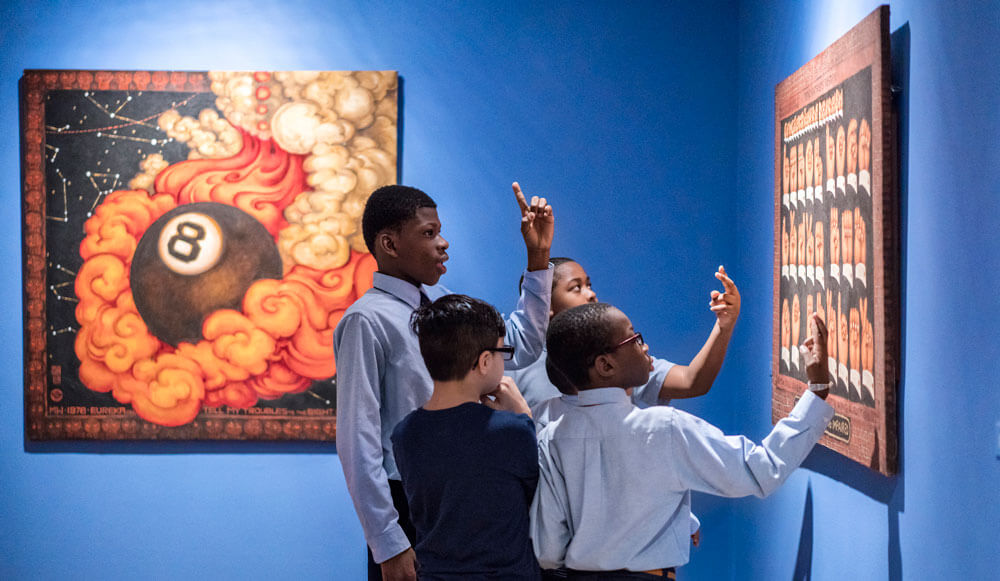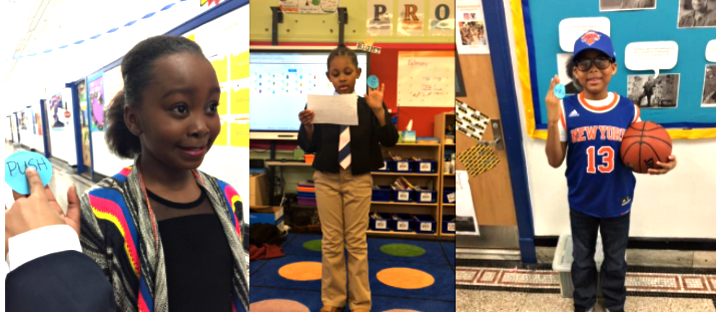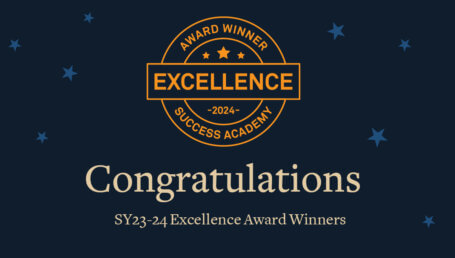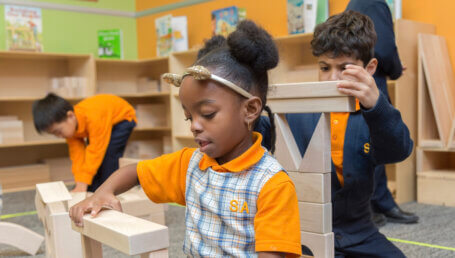

I like to tell my scholars the story of a brave woman who journeyed from South Carolina all the way to New York City, hoping to leave behind segregation and economic stagnation while seeking educational opportunity; hoping to forge a new life. She was one of millions of African Americans who traveled across the country in 1952 during the Great Migration, intent on escaping extreme and racist restrictions in the South. She was also my grandmother.
I’m invested in building culturally inclusive classrooms, so I’m particularly passionate about shedding light on multiple narratives as I teach. When scholars see how current or historical events can hit home on a personal note, they’re able to connect with crucial issues — like race — in more meaningful ways. The high levels of engagement that we strive for at Success Academy can reach even greater heights when scholars learn about a topic from voices that have typically been misrepresented or ignored: voices like theirs.
When scholars see how current or historical events can hit home on a personal note, they’re able to connect with crucial issues — like race — in more meaningful ways.
At SA Prospect Heights, our scholars are primarily black from Caribbean backgrounds, but we also have Latino, Asian, and white families. Other schools in the network look different. We have such a rich variety of demographics, which requires a high-level of responsiveness in discussions about race. This is exactly why my colleague and I launched an initiative promoting racial awareness in the classroom and among staff, and we recently held two sessions focused on culturally responsive teaching.
This year, we invited teachers, Ops, and Leadership to read Elizabeth’s Kozaleski’s Culturally Responsive Teaching Matters, as well as excerpts from James’ Baldwin’s A Talk to Teachers. These provide context for the importance of culturally responsive teaching, as well as tactics for implementation. Then we divided into teams and brainstormed practical and meaningful ways to increase culturally responsive teaching across classrooms. We wanted to make a visible commitment to turning ideas of inclusiveness and sensitivity into a lived reality at Success Academy. So, we asked that everyone teach at least one of the lesson plans from our brainstorming session.
In the 3rd grade, teachers worked with their scholars to create an African American Wax Museum, with each scholar selecting a significant African American individual, researching that person, and then performing as a “wax” statue representation of their heroess. Their teacher, Paige Vansickle, used the project to bring the conversation about race, and the narratives that continue to shape the lives of Black people, to the wider school community. Families came to explore the pop-up wax museum in the school hallways, and to learn about these examples of leadership and activism that the scholars now embodied.

Oprah Winfrey, Barack Obama, & Spike Lee “Wax” Figures
In 2nd grade, we dedicated time each week for unpacking one key moment in race in the history of America. We learned about the slave trade, the Emancipation Proclamation, Reconstruction, segregation and Civil Rights. We did this for four consecutive weeks, and we’re proud it was outside of Black History Month; it’s important to keep these conversations alive throughout the year. We dedicated time in March to exploring the Harlem Renaissance.
I’ve been teaching for five years, but the level of engagement and passion that I see from scholars during these lessons are some of the most impressive I’ve ever encountered. To help them learn about the history that impacted individuals who share the majority of their identities, and to help them internalize and take ownership over these lessons at a personal level, really feels like we are making progress.
We also look for ways to make our lessons come alive, and to show their continued relevance. Our scholars were so excited when they found out that this May we would be visiting the Apollo Theater, the heart of the Harlem Renaissance. They heard a live concert in the very space where Ella Fitzgerald and James Brown performed, and the experience was particularly meaningful because we contextualized and celebrated the movement in our history lessons.
Ultimately, we want to ensure that every scholar feels included and in touch with their cultural background while at our schools. I’m particularly passionate about making an impact in this regard, and am excited to continue building opportunities for culturally responsive teaching next year, when I’ll begin working as assistant principal at SA Fort Greene. I want my scholars to know what it’s like to feel empathy and pride in a grandmother’s achievements in the face of oppression and struggle — and to love themselves for their own.








